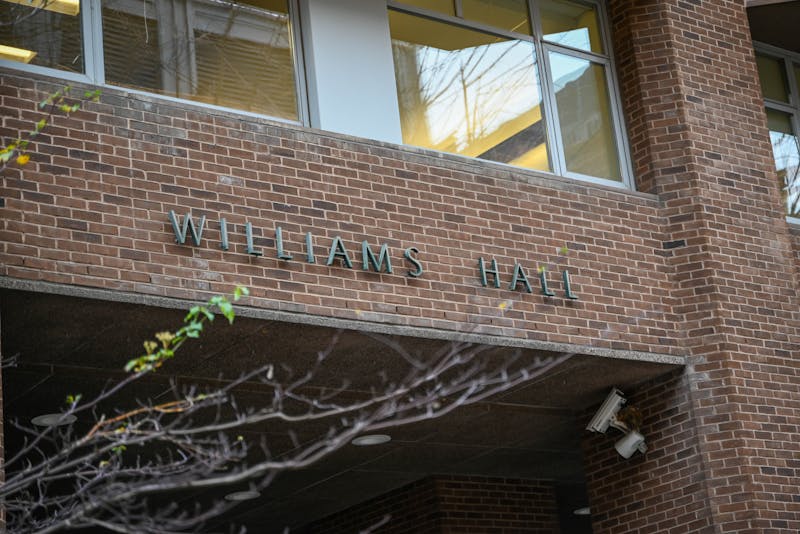
Canadian journalist and author Malcolm Gladwell discussed his new book at a sold-out event at the Penn Museum last week.
Gladwell's Oct. 24 visit was the first Authors@Wharton event of the academic year. He showcased his latest book "Revenge of the Tipping Point: Overstories, Superspreaders, and the Rise of Social Engineering" in a discussion moderated by Wharton professor Adam Grant at the Penn Museum. The first 500 attendees received a free copy of Gladwell's book.
Before becoming a bestselling author, Gladwell began his career as a journalist at The Washington Post and later The New Yorker. During his time at The New Yorker, Gladwell wrote an article titled "The Tipping Point," which he explained became the foundation for the book.
The original book — which was published 25 years ago — explored how epidemics started.
In an interview with The Daily Pennsylvanian, Gladwell said that he initially intended to release the most recent book as a new edition.
"It seemed like so much had happened in the intervening 25 years that it made more sense to revisit everything than just to update the original "The Tipping Point," he said.
While his original work explored how trends and ideas spread, the new book examines the "dark side of contagious phenomena," according to Gladwell's publisher. Gladwell illustrates this argument through examples of what he refers to as social engineering, including the opioid epidemic, bank robberies in Los Angeles, and Harvard's women's rugby team.
Gladwell criticized college admissions practices directly.
"You should be outraged by the inequities in the system," he said. "There shouldn't be a back door for rich people and people playing country club sports. Please think that's absurd."
His critique extended to elite universities' enrollment sizes. One of his biggest criticisms of schools like Penn, which currently enrolls about 10,000 undergraduates, is their limited student body.
"My biggest problem with Ivy League colleges is you're not big enough," he told the DP. "If you have a lot of money, tens of billions of dollars in the bank, you should educate more than 10,000 students."
He pointed to his alma mater, the University of Toronto, which has nearly 70,000 students. "If they [Ivy League schools] truly are elite, they should want to educate as many people as they can."
Students who attended the event told the DP that they appreciated the dynamic between Galdwell and Grant.
"I feel like Adam Grant and Malcolm Gladwell's different viewpoints created a very thoughtful discussion, amazing to listen to," College first year Sam Serruya said.
College first year Tatiana Wilkins agreed, saying "it was incredibly enlightening to watch them converse throughout the afternoon."
Both Grant and Gladwell discussed lessons they learned from their backgrounds as competitive athletes with the DP — Gladwell as a runner and Grant as a diver — and recognized these experiences as key influences on their current success.
"It's about consistency to run, to run six days a week for an indefinite period of time to get a certain level of fitness … metronomic consistency is the key to success," Gladwell said.
Grant explained that his athletic background shaped his approach to professional development.
"My coach would give me a score between two and a half or six. How do I get closer to 10? And that's been an enormously helpful habit professionally," he said. "I'm amazed that people don't score each other all the time."
Gladwell, who co-founded the audio production company Pushkin Industries, hosts multiple podcasts, and makes up to $350,000 per speaking engagement, still maintains his journalistic roots.
"I love the reporting, it's my favorite thing in the world. I don't want to stop doing it," he said.
Editor's note: This article has been updated to correct a wrongly attributed quote.
The Daily Pennsylvanian is an independent, student-run newspaper. Please consider making a donation to support the coverage that shapes the University. Your generosity ensures a future of strong journalism at Penn.
Donate








